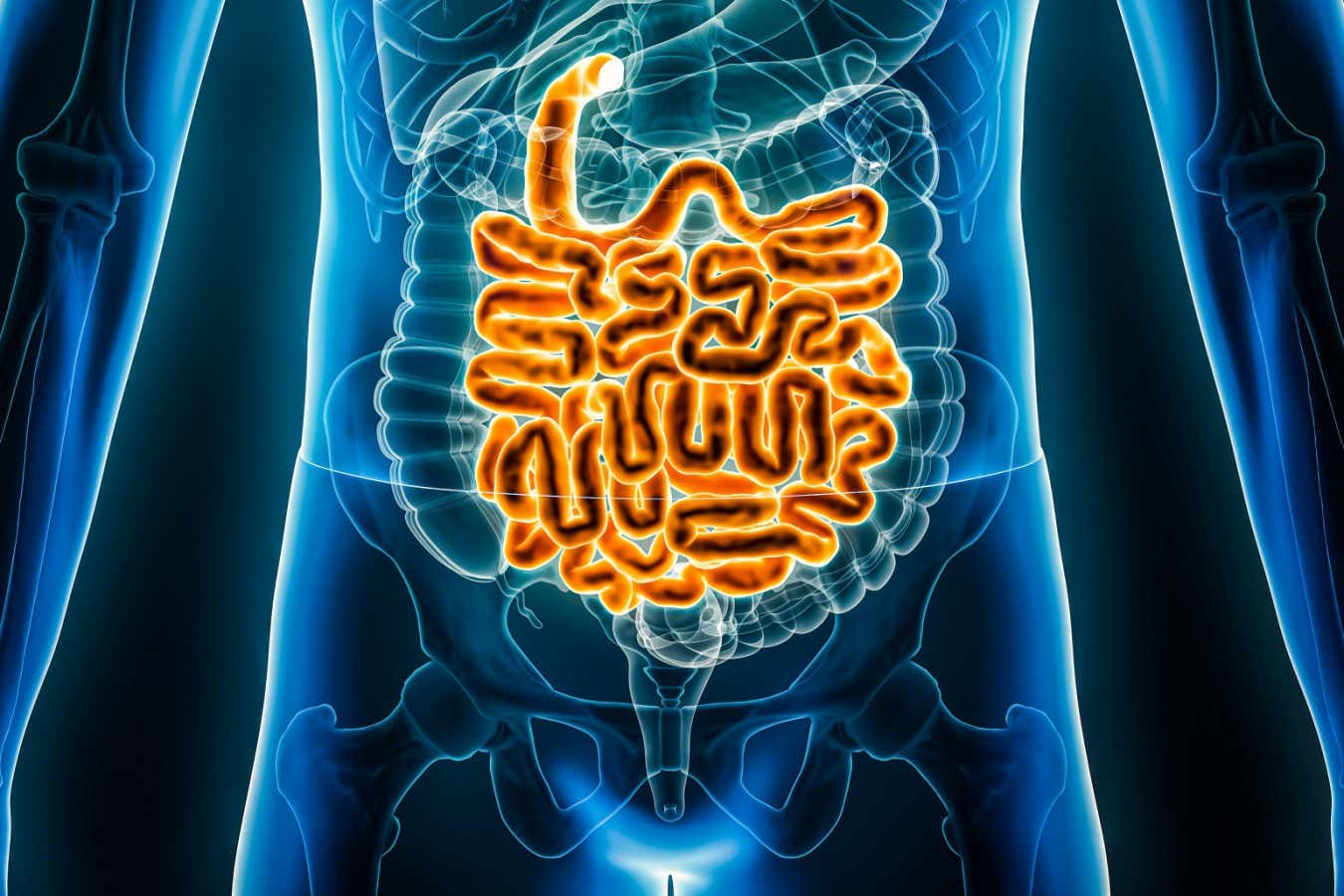A longer small intestine may improve the absorption of nutrients from our food, which may be required more during pregnancy or while breastfeeding
By Christa Lesté-Lasserre
24 April 2023
The small intestine helps to further digest food coming from the stomach
MattLphotography/Alamy
Women’s small intestines are longer than men’s, with this added length probably helping them to better absorb fat and other nutrients if needed for pregnancy and breastfeeding.
“The small intestine is all about absorption, absorption, absorption,” says Amanda Hale at North Carolina State University. “It’s where you get the vast majority of your nutrients from everything you eat.”
Students in anatomy classes aren’t often taught about individual differences and instead focus on organs that follow textbook descriptions, says Hale. But these differences could help to inform healthcare decisions, she says.
Advertisement
“There’s a sort of formulaic approach centred on what’s average or what most people experience,” says Hale. “That’s versus individualised medicine, where you see if a person has specific features about their digestive system that might be contributing to what’s going on and which doesn’t meet the status quo.”
Concerned that important differences could be going undetected, Hale, Erin McKenney – also at North Carolina State University – and their colleagues measured the digestive organs of 21 female and 24 male human adult cadavers that had been donated to Duke University, North Carolina.
They found that, on average, the male cadavers’ small intestines were slightly over 4 metres in length, while those of the female cadavers were 30 centimetres longer. A statistical analysis suggests that this difference wasn’t a chance finding.
